
The Jagiellonian University is a public research university in Kraków, Poland. Founded in 1364 by King Casimir III the Great, it is the oldest university in Poland and the 13th oldest university in continuous operation in the world. It is regarded as Poland's most prestigious academic institution. The university has been viewed as a guardian of Polish culture as well as a significant contributor to the intellectual heritage of Europe.

The Adam Mickiewicz University is a research university in Poznań, Poland.

The Polish Academy of Sciences is a Polish state-sponsored institution of higher learning. Headquartered in Warsaw, it is responsible for spearheading the development of science across the country by a society of distinguished scholars and a network of research institutes. It was established in 1951, during the early period of the Polish People's Republic following World War II.

SGH Warsaw School of Economics is the oldest and most prestigious business school in Poland.
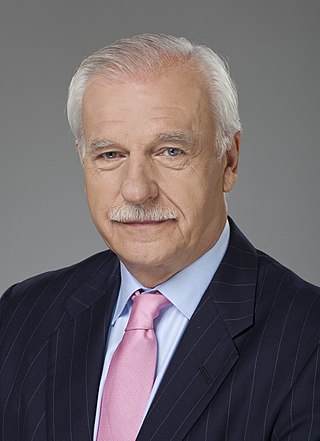
Andrzej Marian Olechowski is a Polish politician. He was one of the co-founders of liberal conservative party Civic Platform in 2001 with Maciej Płażyński and Donald Tusk. He served as Minister of Finance (1992) in the Jan Olszewski's Government and Minister of Foreign Affairs (1993–1995) in the Waldemar Pawlak's Government.
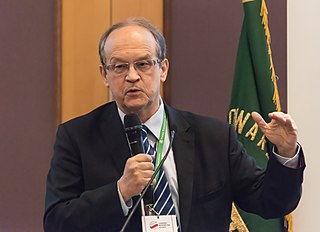
Andrzej Sławiński is a Polish economist and Professor of Economics at the Warsaw School of Economics. He is a member of the Council of Monetary Policies since 2004 and a fellow of Collegium Invisibile.
Antoni Mączak was a Polish historian specializing in the economic, political and social history of Poland and history of Europe.
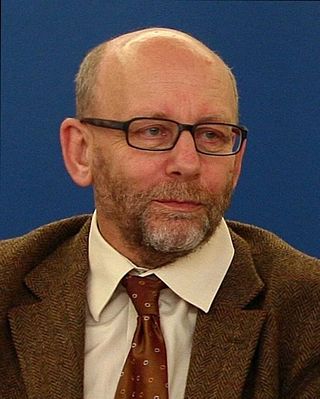
Paweł Śpiewak was a Polish sociologist, historian, author and politician. He was the Director of the Jewish Historical Institute in Warsaw.

The University of Warsaw is a public university in Warsaw, Poland. Established in 1816, it is the largest institution of higher learning in the country offering 37 different fields of study as well as 100 specializations in humanities, technical, and the natural sciences.
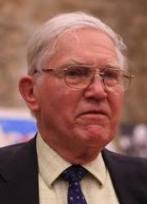
Zbigniew Pełczyński was a Polish-British political philosopher and academic. He taught politics at Pembroke College, Oxford, from 1957 to 1992, and was later an Emeritus Fellow of the college. Pełczyński was instrumental in providing opportunities for scholars from Poland and other post-communist countries to study at British universities, especially at Oxford and Cambridge.
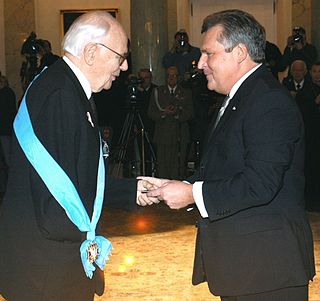
Jerzy Kazimierz Kłoczowski was a Polish historian, professor at the John Paul II Catholic University of Lublin, and former member of the Polish Senate. During World War II, Kłoczowski was a soldier of the Home Army and participated in the Warsaw Uprising, where he was seriously injured and lost his right hand. On leaving the military hospital in April 1945, he went to Adam Mickiewicz University in Poznań and then to Nicolaus Copernicus University in Toruń, where he earned a degree and a Ph.D. (1950). Member of the anti-communist Solidarity movement – after the fall of communism in Poland, Kłoczowski was elected Senator and member of the Commission for Foreign Affairs of the Senate, as well as the representative of the Polish Parliament at the Council of Europe.

Jan Błoński was a Polish historian, literary critic, publicist and translator. He was a leading representative of the Kraków school of literary criticism, which wielded significant influence in postwar Poland.

Marek Jan Siemek was a Polish philosopher and historian of German transcendental philosophy. He was a professor at the Institute of Philosophy of the University of Warsaw and the director of its Department of Social Philosophy.
Institute of Philosophy of the University of Warsaw is a research institution located in Warsaw, part of the Faculty of Philosophy and Sociology of the University of Warsaw. It is renowned mainly for its contribution to the development of modern logic and analytic philosophy and to history of ideas. Provides master's degree studies, doctor's degree studies and postgraduate studies in philosophy both in Polish and in English.
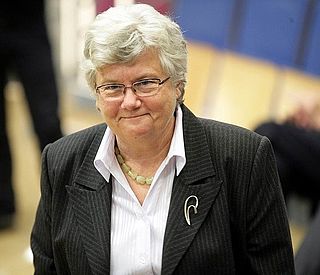
Katarzyna Chałasińska-Macukow is Polish physicist and professor at the University of Warsaw. In 2005 and again in 2008 elected for the post of the rector of the University of Warsaw.

SWPS University of Social Sciences and Humanities or simply SWPS University is a private non-profit university in Poland established in 1996 by three psychology professors, Andrzej Eliasz, Zbigniew Pietrasiński and Janusz Reykowski.
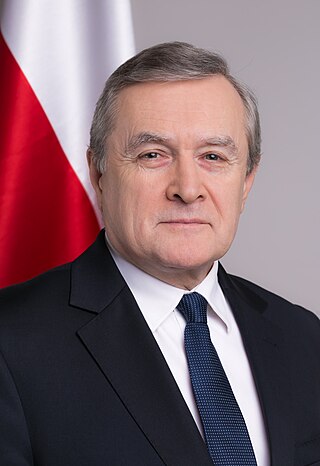
Piotr Tadeusz Gliński is a Polish sociologist, professor, university lecturer and politician. He served as president of the Polish Sociological Association from 2005 to 2011. He was the nominee of Law and Justice for Prime Minister of Poland in 2012 and again in 2014. In the cabinet of Beata Szydło, he served as the First Deputy Prime Minister and the Minister of Culture and National Heritage. He continues to serve in his Ministry in the government of Mateusz Morawiecki.
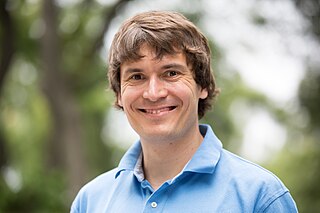
Dariusz Jemielniak is a professor of management at Kozminski University, faculty associate at the Berkman Klein Center for Internet & Society at Harvard University, and vice-president of Polish Academy of Sciences.
Jerzy Jedlicki was a Polish historian of ideas, Humanities Professor and an anti-communist activist during the times of the Polish People's Republic.

Jan Oskar Kieniewicz is a Polish historian, diplomat and humanities professor. He specialised in the history of India and European, Spanish and Polish history. He is a member of the Collegium Invisibile and the jury for the KLIO Award.


















